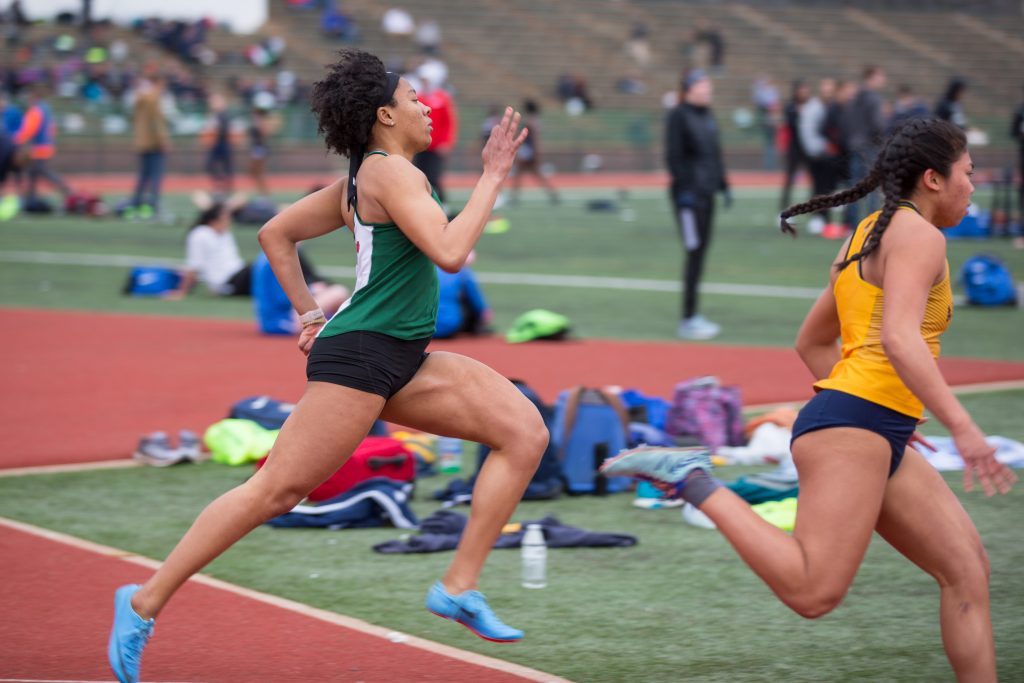Sports | Track and Field
Track and Field copes after NCAA cancellations derail season
Less than 24 hours before the indoor track and field national championships, the Washington University track team was doing their final preparations for the competition when texts began to roll in.
“We were being informed by people texting us, ‘Did you see this?’ senior Nick Matteucci said. “I called up my coach and he brought me into the room with another captain and informed us what was going on and that the season was officially done.”
The NCAA’s decision to cancel the remainder of the winter season and entire spring season came as a shock to the members of the track team who were anticipating two more months of meets—or at least the chance to run at nationals last Friday. Instead, they had to pack their things and head back home.
“I feel it’s complete BS. Like I’m sorry. There’s just no other words to that,” junior Caira Watson-Haynes said. Watson-Haynes, one of the best hurdlers in the country, had family who flew into North Carolina to watch the meet. Instead, she watched as the NCAA’s policy transitioned from allowing only limited spectators to no spectators to outright cancellation.
 Grace Bruton | Student Life
Grace Bruton | Student Life Junior Caira Watson Haynes rounds the bend onto the homestretch during a 200m heat last spring. Watson Haynes’ family flew into North Carolina to see her compete in the NCAA national championships before they were cancelled.
“It put a big financial risk on my family,” Watson-Haynes said. “The timing of it was definitely less than ideal. I understand it’s a very fluid situation, but we were here. It’s 20 hours before the meet. Everyone has already practiced at the track. You should have just let it happen. That’s my feeling on it.”
The cancellations represented an opportunity denied for the men’s track team. Two weeks removed from a dominant University Athletic Association conference championship performance, they were in prime position to challenge for the national championship.
“We had a chance to really win the whole thing,” Matteucci said. “To have that all of a sudden happen was very unexpected and pretty tough.”
The circumstances made processing the cancellations even harder for the Bears.
“To have your indoor [national championship] taken away less than 24 hours before the meet after you already went to the track, saw the track and had that experience, to have it taken away through Twitter and your coaches,” Watson-Haynes said. “It was definitely tough.”
Different competitors have handled the news differently. For Watson-Haynes, the cancellations did not feel real on Thursday and she did not expect them to feel real until Friday, when she was supposed to be running. At dinner that night before they left, the team experienced a mix of mourning what was lost and celebrating what was had.
“They actually did some stuff to honor the seniors and they had talks for them,” Matteucci said. “I think, for those of us who are going to be graduating, that was a really kind and sweet gesture that just made us really grateful for the community that we’ve had. I’m not going to pretend like it was all just happy and everyone was just over it very quickly. In fact, I’d say that most people still aren’t completely over it. But I think that helps make things a little easier to swallow and put in perspective just how lucky we’ve been.”
For the student athletes who were traveling this weekend, the NCAA’s decision was made even more complicated by Wash. U.’s decision to cancel in-person classes and remove students from housing. Members of the track team arrived back on campus on Friday and had to leave Sunday along with everyone else staying on Wash. U.’s campus.
“At first, I thought I was going to stay. I’m glad I didn’t,” freshman Gio Alfred said. “It feels weird because I’m home right now. It doesn’t feel like I should be here. It feels like I should still be at Wash. U.”
Despite the quick turnaround in leaving campus for those who were at nationals, the news may have been tougher to hear for the competitors at home.
“People from our team were like, ‘I’m so sorry. You were so close to being able to compete.’ And that was hard, but I felt worse for our seniors who were by themselves,” Matteucci said. “They were at home and they got the news alone and didn’t have a support group right there. I had 29 other athletes there and a couple coaches as well. I was not alone. I was really grateful that I didn’t have to deal with that sad news by myself that had a kind of community and support network right away.”
The track team is more than a group of competitors. It is the kind of familial and supportive environment that is important in tumultuous times. Losing the atmosphere of the team may prove to be more devastating for its members than the loss of the season.
“I’m more concerned about our underclassmen, who are now just going to be at home having to do classes by themselves, having to do any training by themselves and then having that continue into the summer,” Matteucci said. “It’s going to be a long time of isolation from people.”
Those concerns are shared by some of the underclassmen.
“I’m not the most social person, so I was really just starting to get to know my teammates,” Alfred said. “That just got shut down since the season is done. And I’m kinda bummed since a lot of them are cool people.”
